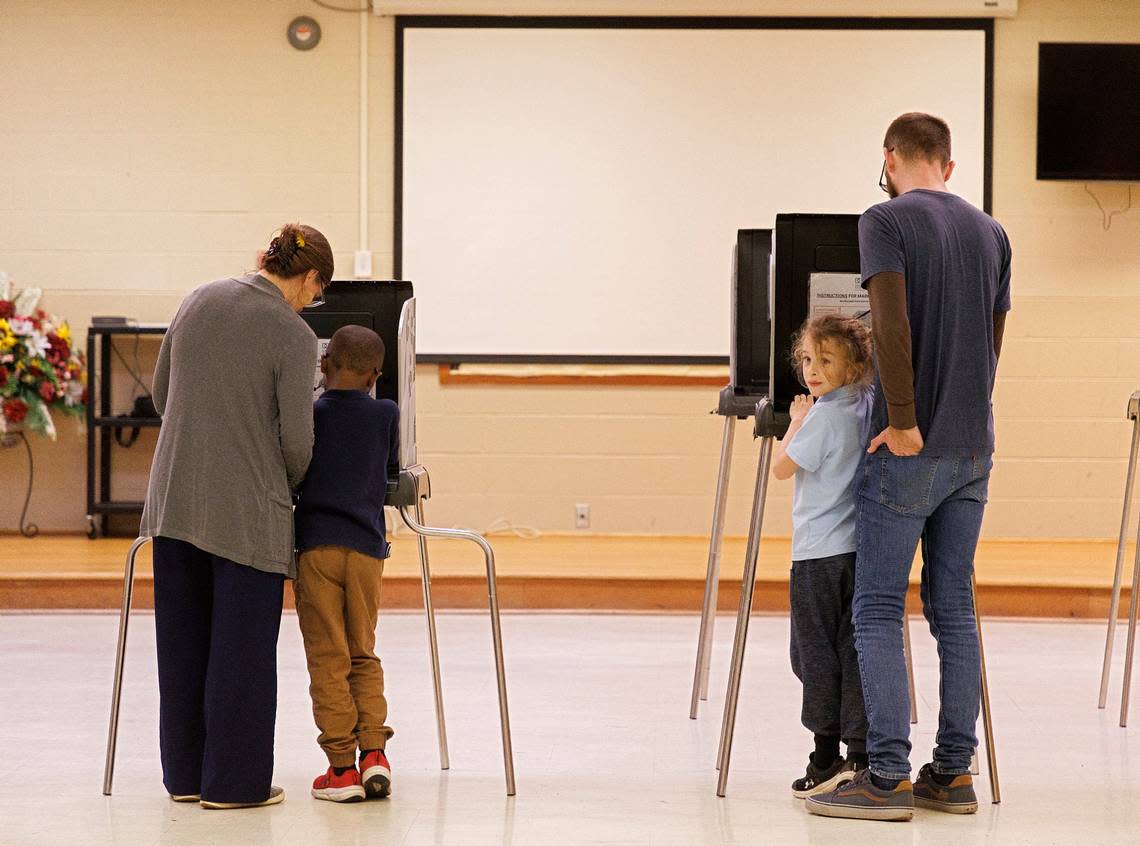Citizens-only voting constitutional amendment will appear on 2024 ballot in NC

In November, North Carolina voters will be able to decide on a new amendment to the state constitution that would clarify that only citizens are allowed to vote.
”We’ve got an opportunity to empower the people of North Carolina to amend their own constitution and declare that citizens and only citizens of the state of North Carolina are allowed to vote in our elections,” Sen. Brad Overcash, a Gaston Republican, said.
It is already a crime for noncitizens to vote in federal elections, and state law requires residents to be citizens to register to vote.
Republican lawmakers who sponsored the amendment say it will clear up ambiguity in the constitution and prevent municipal governments from allowing noncitizens to vote in local elections, as has happened in some other states.
Critics say it could fuel anti-immigrant conspiracy theories and that Republicans are using it to drive conservatives to the polls.
“I don’t want to impugn the motives of my colleagues,” Sen. Julie Mayfield, a Buncombe County Democrat, told The News & Observer last week. “…But ultimately I think these are coming up because it’s a turnout issue.”
The amendment passed the House and Senate with bipartisan support.
Other constitutional amendments, including ones dealing with voter ID and income tax, passed the Senate but will require further approval from the House before they can be sent to voters.
In order for a constitutional amendment to be sent to voters, it must first be approved by a supermajority of both chambers of the legislature.
Voter ID, income tax constitutional amendments
In addition to the citizen voting proposal, senators passed two more amendments that would largely codify existing law.
One would specify that voter ID is required for all forms of voting, not just in-person. This is already the law in North Carolina. The other would lower the state’s income tax cap from 7% to 5%. The current individual income tax rate is already below that, at 4.5%.
Those amendments could also sway an ongoing legal challenge in Republicans’ favor, if approved.
The North Carolina NAACP sued the state over similar constitutional amendments in 2018, arguing that since many lawmakers were found to have been elected in racially gerrymandered districts, they did not have the authority to amend the constitution.
That case still hasn’t been resolved, but if voters approve new amendments in 2024, it could become moot.
“We will not allow these elected officials to roll back the freedoms that people sacrificed their very lives to gain,” Deborah Dicks Maxwell, president of the NC NAACP said in a statement on Monday. “We will continue to pursue every legal challenge to these discriminatory laws and encourage every eligible voter to make their voices heard at the polls this November.”
Other changes to election law in the works
Earlier on Thursday, the House approved an amendment to the constitution to repeal the state’s Jim-Crow era literacy test requirement for voting. The Senate has not taken it up.
On Wednesday night, the Senate passed a sweeping bill that would make the following changes to election law:
Require political ads to include a disclosure if they used generative artificial intelligence in certain circumstances.
Require the use of signature verification technology to check mail-in ballots beginning in 2025.
Require county boards of elections to check death records and felony conviction records prior to certifying an election to determine if ballots need to be removed.
State that once a local government’s election methods have been changed by the General Assembly, the local government cannot alter those changes until the next federal census.
That bill has not been taken up by the House.


